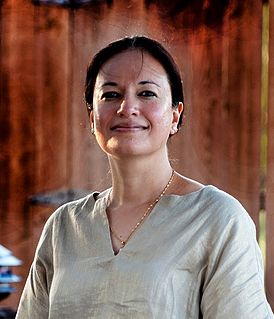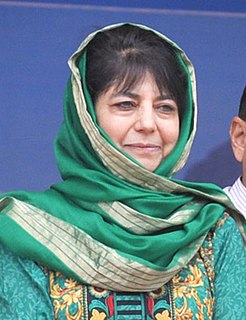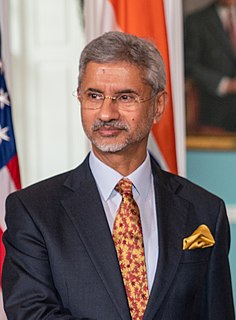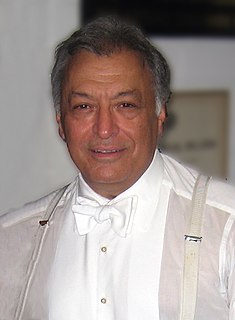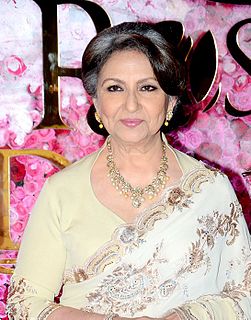A Quote by Indira Gandhi
India had barely become independent, in 1947, when Pakistan invaded Kashmir, which at the time was ruled by a maharajah. The maharajah fled, and the people of Kashmir, led by Sheikh Abdullah, asked for Indian help. Lord [Louis] Mountbatten, who was still governor general, replied that he wouldn't be able to supply aid to Kashmir unless Pakistan declared war, and he didn't seem bothered by the fact that the Pakistanis were slaughtering the population.
Related Quotes
A good American friend of mine who has lived in India for many years, working as a journalist, was recently denied entry to the country because he wrote on Kashmir. This is a reflection of fractures within society. Pakistan, too, has to focus on the Lashkar [Lashkar-i-Taiba] and other similar groups and work towards some sort of sensible compromise on Kashmir.
It is now that the Left in India is urging the federal government to initiate unconditional talks with all stakeholders in Kashmir. Otherwise, up until now, the Left didn't even support the autonomous status of Kashmir, and the Kashmir imbroglio is not a conflict between the forces of Marxism and capitalism.
The issue of Kashmir is both political and emotional in nature. Any pragmatic and lasting solution needs India and Pakistan sitting together on a table and discussing a solution that addresses the aspirations of Kashmiris and does not compromise the territorial integrity of either India or Pakistan.
In an ideal world, you could reunite the Pakistan-occupied part of Kashmir with the Indian-occupied part and restore the old borders. You could have both India and Pakistan agreeing to guarantee those borders, demilitarise the area, and to invest in it economically. In a sane world that would happen, but we don't live in a sane world.





